WHO ARE WE ?
This association aims to create and promote an early support centre for pediatric development, in particular in the field of neurodevelopmental disorders (autism spectrum disorders, ADHD, dys- syndromes, high intellectual potential, cerebral palsy…).
THE VISION OF THIS CENTER
Our vision is to create a centre for medical diagnosis and therapy, with pediatric doctors and professionals from the medical and paramedical fields, open to alternative approaches and whose primary objective is the well-being of the children and their family.
In the future, we would like to offer comprehensive education and support adapted to specific needs of the children, in the form of a kindergarten and school for 3 to 8-year-olds.
PROFESSIONAL TEAM
- Paediatrics
- Logopedics
- Psychology
- Psychomotricity
- Occupational Therapy
- Naturopathy
- Pediatric Physiotherapy
- Special Education
- Kinesiology
The paediatrician is the first point of contact for children and young people for their health; they ensure comprehensive, continuous and sustainable care. The paediatrician carries out all preventive examinations and parental guidance, as well as taking charge of the vast majority of treatments. The early diagnosis and identification of developmental disorders and health risk situations make their activity targeted and highly effective. This is all the more reinforced if the paediatrician is trained more specifically in neurodevelopment. The paediatrician’s links with therapeutic and medico-social structures, the most diverse consultation centres, schools and the authorities make it possible to offer appropriate support and comprehensive treatment to patients with special needs.
Such a centre as imagined by this association will considerably optimise the usual work of the paediatrician with a particularly sharp eye on paediatric development. The paediatrician ensures a personalised, long-term follow-up that is geared towards the patient and his or her family.
Working with a random group of patients requires a sound medical knowledge, diverse technical skills and a thorough knowledge of the development and behaviour of children of different ages and from a wide range of socio-economic backgrounds.
Paediatrics is both the gateway and the interface for all medical problems, from the simplest to the most complex. Established interdisciplinary and inter-professional interfaces are a prerequisite for high-quality care. Working in multidisciplinary teams is enriching, intellectually stimulating and often surprising. Paediatrics requires not only a refined sense of analysis and judgement, but also strong communication skills and a good dose of creativity, empathy, flexibility and humour. In a patient-centred and personalised paediatric approach, child-friendly care is central.
To express oneself… by oneself and for oneself. To blossom with others, to share one’s desires, emotions and interests, to grow, think, play and feel good.
Using playful techniques and adapted games, speech therapists help your child to develop their communication skills (gestures, language, pictures, etc.) so that he can make his voice heard and develop with others. The so-called "ecological" therapies are favoured, so that the child is always in a natural setting and experiences concrete communication situations (games with other children, workshops, outings in nature…). The personalised speech therapy project will be defined according to the specific needs of your child, in partnership with health and education professionals and in collaboration with the parents.
Your child is
- Restless, impulsive, angry, oppositional….
- Anxious, sad …
Your child has
- Difficulties in learning at school (reading, writing, arithmetic…), difficulties in
adapting to school, behavioural problems, etc. - A delay in development
An assessment and/or psychological follow-up could help you
- Evaluation of cognitive functions
- Assessment of Developmental Disorders
- Assessment of behavioural disorders
Diagnosis of DYS disorders and support for children/adolescents
Psycho-educational guidance
Support and pedagogical differentiation project at school
Psychomotricity aims to support global development. Its earliest action is carried out with the infant. It can also concern the child and the teenager.
Axes of care :
- Sensory-motor development: Control and coordination, sensory tools (vision, hearing, touch, proprioception) and first motor skills (posture, sitting, walking, gross and fine motor skills, etc.).
- Development of motor skills: Body schema (image/representation of the body), general coordination, balance, strength dosage, graphics.
- The development of autonomy: Daily management, organisation of space and time, activity planning.
- The development of social skills: Self-esteem, relational and emotional tuning, self-regulation of behavior, expression/communication.
In a creative and rewarding framework, psychomotricity seeks to stimulate the child’s potentialities, support their development and self-confidence.
By means of :
- Experience and mastery of the body: Exploration of the body through movement, postural stability, mastery of sensory perception, development of attention and concentration capacities.
- Organization of space and time: Development of organisational strategies and routines that promote efficiency and autonomy.
- Improve self-knowledge: Development of relational and emotional tools adapted to group life, expression/creativity, self-confidence.
The main indications :
- Early developmental disorders: Developmental delay, premature development, sensory disorders.
- Gross or fine motor disorders: Clumsiness, dyspraxia, coordination disorders, tonic regulation disorders, balance disorders, laterality/orientation, dysgraphia, fine motor skills.
- Attention deficit/concentration disorders: Hyperactivity, impulsivity, motor restlessness.
- Behavioural disorders: Lack of inhibition, oppositional disorders, anxiety, shyness, lack of self-confidence.
Following the psychomotor assessment, treatment is carried out individually or in small groups in partnership with the parents.
In order to better apprehend the child’s difficulties and needs, networking is often proposed.
Occupational therapists help children and young people who are limited in their ability to act due to a congenital, developmental or acquired sensory, motor, cognitive or/and psychological disorders with the following measures:
- enable and train age-appropriate skills such as dressing, eating, cycling, writing,
playing, etc. ; - Stimulate the recording and processing of sensory information (touch, own body
perception, balance); - to ensure functional stimulation based on fine and gross motor activity;
- convey action-based strategies such as focused attention, planning and monitoring;
- promote social and emotional skills ;
- to exercise visual, auditory, spatial and memory-related abilities as conditions for the ability to act;
- advising about and adapting aids; making splints ;
- advising parents and relatives; ensuring prevention.
Children and young people are in a phase of intense development. Physical or psychological
impairments can restrict them in the planning and implementation of everyday activities and
thus in the development of their autonomy, often resulting in suffering.
Through the acquisition of new skills or through compensation, the child can increase his or
her capacity for action and strengthen his or her self-esteem. The main objective of the
therapy is to enable the child to be active judiciously in his or her environment.
Good cooperation with parents, treating doctors, schools, social institutions, insurance
companies and other therapists is crucial to the success of the therapy.
In order for children with neurodevelopmental disorders to develop in the different areas of learning, we can put in place several things.
- Nutritional advice to support a healthy diet and lifestyle.
- Recommendation of plants that can help to centre and ink the child.
- Suggestion of homeopathic remedies that can improve learning and concentration, while helping alleviate, and even eliminate, sleep and digestive disorders improve or even disappear.
- Our vision to consider the whole child, and understand where lies the dysfunction in order to help empower them.
- Listening to parents and siblings as well, so that the whole family is sailing towards the same goal.
In paediatric physiotherapy, the treatment of the child is at the centre of all activities. Paediatric physiotherapists care for premature babies to adolescents, i.e. children from 0 to 18 years of age with congenital or acquired disorders, as well as children whose sensory-motor development is at risk of being impaired by other factors.
The objective is focused on supporting the child’s autonomy and needs in his or her daily life – in exploration, interaction, play and everyday activities – by stimulating and supporting his or her sensorimotor skills.
Therefore, an evaluation of the origin of the disorders is necessary. The disorders can be varied and combined, affecting different systems:
- neurological (organisation and functioning of the nervous system)
- orthopaedic (malformation, asymmetries and variants of the skeleton or musculoskeletal disease)
- respiratory (pulmonary disease or limitations due to asymmetric postures or limited activities)
- functional (posture and handling) interventions help create or recover physical conditions – in terms of mobility, strength, perception, innervation, initiation and coordination of movements.
- to gain sensorimotor skills adequate to the needs and motivations of the child.
The interest is in finding solutions for each individual situation. By encouraging the child and their family in the exploration and repetition of movements, together we seek a reasonable and favorable “use” of the body.
Collaboration with the child, their parents and entourage, as well as the teaching of therapeutic gestures forms the basis for effective treatment.
(compléter)
Body and mind care by :
- Kinesiology: This simple and effective method uses painless muscle testing to obtain psycho-emotional or energetic corrections.
- Hypnosis: Hypnosis is a therapy in which the unconscious mind brings resources to the person that are useful for his or her well-being.
- Magnetism: This given energy is transmitted intuitively and by laying the hands of the therapist on the child.
Every treatment, depending of the objective, will consist of one or several therapies to obtain improved balance and positive energetic vibration.
OUR VALUES
THE TEAM
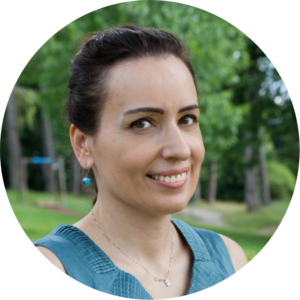
Léna Gorgé Giancola
President and project initiator
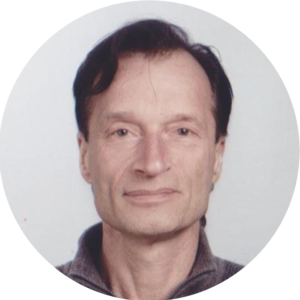
Patrice Guyot
Vice president, Psycho-motor therapist
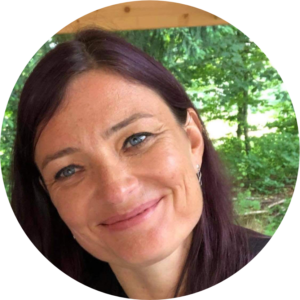
Francine Schneider
Secretary, Naturopathe
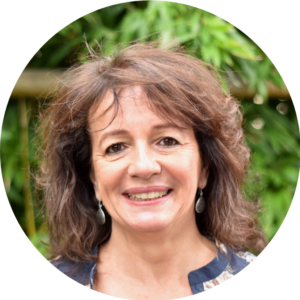
Sandra Noth
Kinesiologist
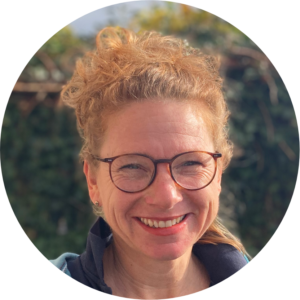
Karoline Steinemann
Physiotherapist
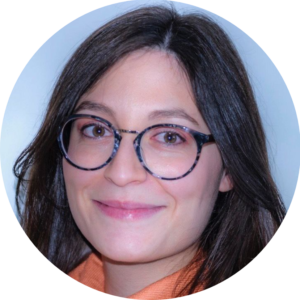
Rute Ruaz
Treasurer
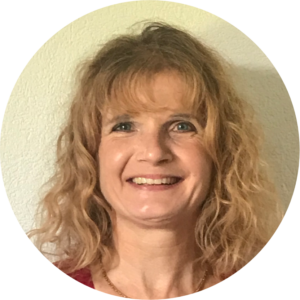
Brigitte Vuille
Psychologist
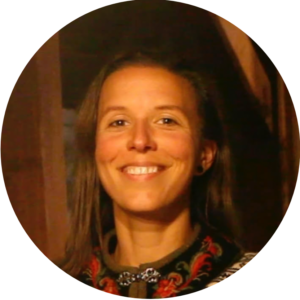
Pauline Merminod
Occupational therapist